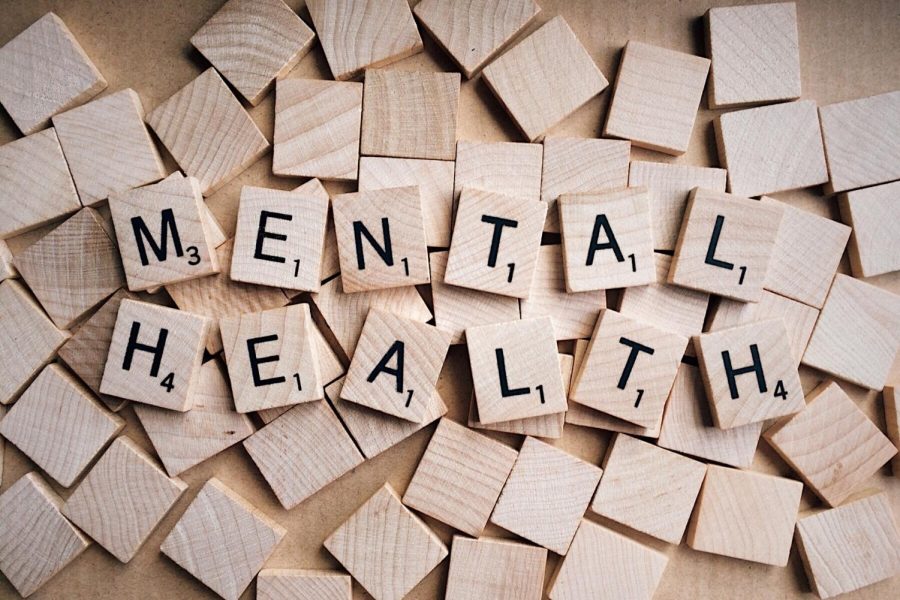Study reports CUNY students’ mental health worsened due to pandemic
March 12, 2021
A recent study published in the Journal of Urban Health found that CUNY students’ mental health has been severely impacted by the coronavirus pandemic.
The study surveyed 2,282 CUNY students in April 2020. Factors such as health concerns, financial or housing instability, food insecurity, isolation and more were addressed in the study.
“The effects of the pandemic … have all been detrimental to student’s mental health,” Lynn Kaplan, associate director of the Baruch College Counseling Center, said. “They all contribute to depression, anxiety and other mental health issues. Each person is impacted differently based on their own unique experiences and life circumstances.”
More than half — 54.5% — of the students in the study reported having anxiety and/or depression.
“A third of the students coming to the Counseling Center are struggling with suicidal thoughts which are comparable to other colleges and universities in the United States,” she said.
In a Google survey shared on social media by The Ticker, 94.4% of the 18 students who responded said that the pandemic has affected their mental health.
“The isolation I’ve felt during this quarantine was just awful because I’ve felt so disconnected from reality,” Josephina Gjonaj, an economics major, said. “I haven’t seen some of my friends in well over a year and I really wanted to because some of them had loved ones who died from COVID. I couldn’t see them because I was scared of getting anyone in my own family sick. But then that also made me feel like a bad friend and so it’s like a vicious cycle going through my head.”
Students selected words such as “stressed,” “tense” and “overwhelmed” to describe their mental state during the pandemic.
“I try to be positive but there’s always days where it’s hard,” junior operations management major Mahek Patel said.
The Journal of Urban Health study found that the strongest predictor of anxiety and depression was housing and food insecurity.
Half of the student respondents expressed concern over losing their housing or access to food. These students sometimes — 37% — or often — 13.2% — had concerns about running out of food before being able to afford more.
Sixty percent stated that the pandemic reduced their household’s ability to buy food. Those who often or sometimes had experienced hunger because of a lack of access to food made up 17.8% of respondents.
At the time of the survey, about a quarter of students said that their general health was fair or poor.
Nearly 30% stated that they or someone in their household had experienced symptoms of COVID-19.
“There was a long time period in which my older sister kept getting sick on and off because her immune system was weak after she was working at an urgent care,” Gjonaj told The Ticker. “I was constantly scared that I might pick something up and get her even sicker and she’d need to be hospitalized. This went on for like 3 months straight. My mom is also a healthcare worker, a nurse, so there’s always been that lingering fear that she’d get COVID as well.”
Most of the students — 81.1% — reported that they experienced a loss of household income.
Nearly half said that their weekly household expenses increased. The biggest costs derived from the cost of cleaning supplies and food.
“I’ve lost family members,” Emily Chavez, a junior computer information systems major, told The Ticker. “It’s hard to get a virtual job on campus and things are expensive without constant income.”
More than half of students reported a decrease in their ability to do schoolwork. More than 73% of these respondents cited their mental state as the reason why.
“I don’t feel like I’m learning much of anything,” Gjonaj said. “I’ve now spent well over a year of my college career online and I’m almost halfway done with college, but I still feel like a freshman. I feel like time stopped in March 2020 and now there’s all this pressure on us sophomores to figure everything we want to do with our futures, but I still feel like a kid.”
There is also an increased need for mental health services due to the pandemic, as reported by almost half of students in the survey.
Kaplan said she believes that CUNY and Baruch students are more vulnerable to mental health struggles due to the pandemic than other types of students.
“CUNY/Baruch students come from communities of color, families who are struggling financially, international students who are separated from their families, undocumented students and students with DACA status who have to worry about immigration issues,” she said. “Many of our commuter students are living with family which can become stressful due to quarantine and students potentially having added childcare or financial responsibilities during the pandemic.”
For some students, the pandemic has positively impacted their mental health.
“The pandemic actually gave me more ‘me’ time and helped me focus on becoming the best version of myself,” finance major Andreea Pirvulesca said. “I used to be more stressed, wanting to fit in personal time with school time … Now I feel like I have caught up on sleep and am more productive since I have more time to space out assignments and get them done without burning out. My brain doesn’t feel ‘fried’ anymore.”
Alina Li, a sophomore human resources management major, also expressed a positive outlook on the pandemic and hope for the future.
“I’ve been able to figure out myself more in-depth and acknowledge things for how they are and just the mere fact that everything is happening for a reason,” she said. “This hardship that everyone, including myself, is going through will be worth everything after this pandemic ends. I truly believe that.”
The Counseling Center at Baruch holds weekly short-term individual psychotherapy, weekly group therapy to students struggling with isolation and interpersonal concerns and weekly Black Mental Health Matters support sessions.
During the pandemic, it has hosted over 120 outreach events on various mental health topics aimed at students, faculty and staff.








